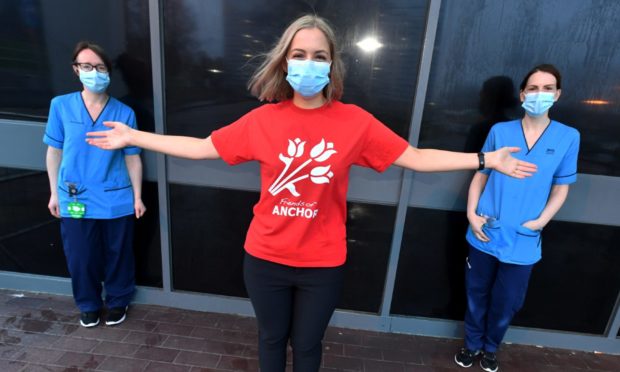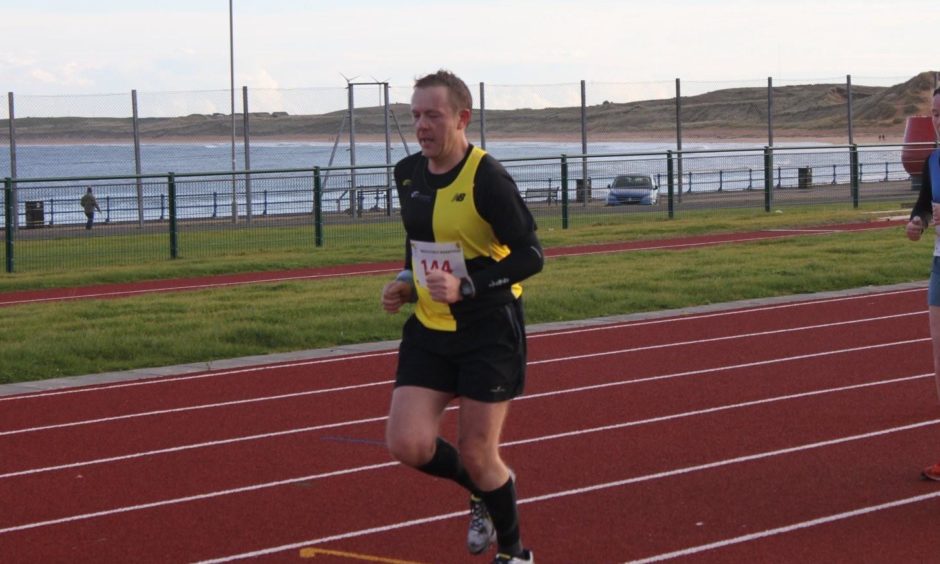A charity is furthering its decade-long commitment to haemophilia patients in the north-east with the announcement of generous new funding.
Cancer and haematology charity Friends of Anchor has pledged an additional £15,745 a year to help boost services for those suffering from the genetic disorder within Anchor wards at Aberdeen Royal Infirmary.
The money will go towards employing a new band five physiotherapist to benefit the hospital’s patients.
Haemophilia impairs the body’s ability to create blood clots, which are needed to stop further bleeding, results in people bleeding for longer after an injury and increases the risk of bleeds inside joints or even on the brain.
Support from life-changing physiotherapy has allowed many to carry on their lives more easily, something the charity has helped fund on a weekly basis for the past 10-years.
At the beginning of this year, Rachel Donald joined the ARI team’s resident physiotherapists who dedicate their time to treating the condition.
As part of a rotation scheme within the ARI, Anchor patients at the facility and those in other areas within the city and out in Aberdeenshire will receive care from the specialist medical worker.
This will include work alongside specialist teams in other departments such as cardiothoracic and geriatric medicine to provide the best treatments.
Specialist physiotherapist Wendy Bloom said: “Physiotherapy can benefit many oncology patients and people living with a blood disorder.
“The individualised exercise programmes we offer can transform the quality of life for this group of patients.
“We can see people go from having anxiety over the smallest activity to successfully completing marathons – something that simply wouldn’t be possible without treatment, combined with specialist physiotherapy.
“This additional funding from Friends of Anchor, to bring another member into our team, will go a long way to encourage more efficient assessments, appropriate interventions and timely discharge of patients.”
For years, both Ms Bloom and her colleague, Emma Kumar have helped provide specialist physiotherapy to those suffering from the condition.
The practice, when used in conjunction with infusions and exercise, has helped manage the condition and allow people to participate in all aspects of life.
Professor Henry Watson, charity trustee and consultant haematologist at ARI, said: “The physiotherapy service we can provide through Friends of Anchor’s support is over and above standard provision and brings a great deal of benefit to our patients.
“It is great to be celebrating 10 years of funding this service by increasing our commitment to provide patients with a better quality of life.”
Specialist physiotherapist, Emma Kumar added: “We have a lot to celebrate having delivered this service for 10 years.
“Thanks to Friends of Anchor’s additional funding boost, we’ve been able to bring a new member on board to the wider physiotherapy service, which will only improve the care and treatment patients receive.”
Allan Leslie knows the difference haemophilia support has on everyday life
As an Anchor Unit patient who has experienced first-hand the benefits of the physiotherapy service offered through the haematology department, Allan Leslie knows the difference this support has on everyday life.
Having grown up alongside two uncles that suffered from the life-changing and sometimes debilitating condition, the now 53-year-old had a glimpse into his own future from a young age.
But, with the help of staff at Aberdeen Royal Infirmary he has been able to enjoy the sports and activities he loves with careful management of his body – even taking on a marathon.
He said: “The assistance I have received from the physiotherapists at NHS Grampian has helped me no end.
“I have been able to take on marathons, cycle and play touch rugby on occasion – all of which would have been harder without their help.”
Hoping to be fit and ready for the event next year, the NHS worker has also managed to raise £3,000 in the name of Home-Start Aberdeen while preparing to take on the London Marathon.
He added: “Back in my 20’s, if I ever had an issue with my Haemophilia, it was always a case of rest, rest and more rest.
“But now we can wait for the bleed to stop and then be more active.
“Before you would rest to a point where you would lose a lot of muscle. Now the treatment plan now is so much more beneficial.
“The physiotherapy helps shorten your recovery time so much if you have an issue.”

